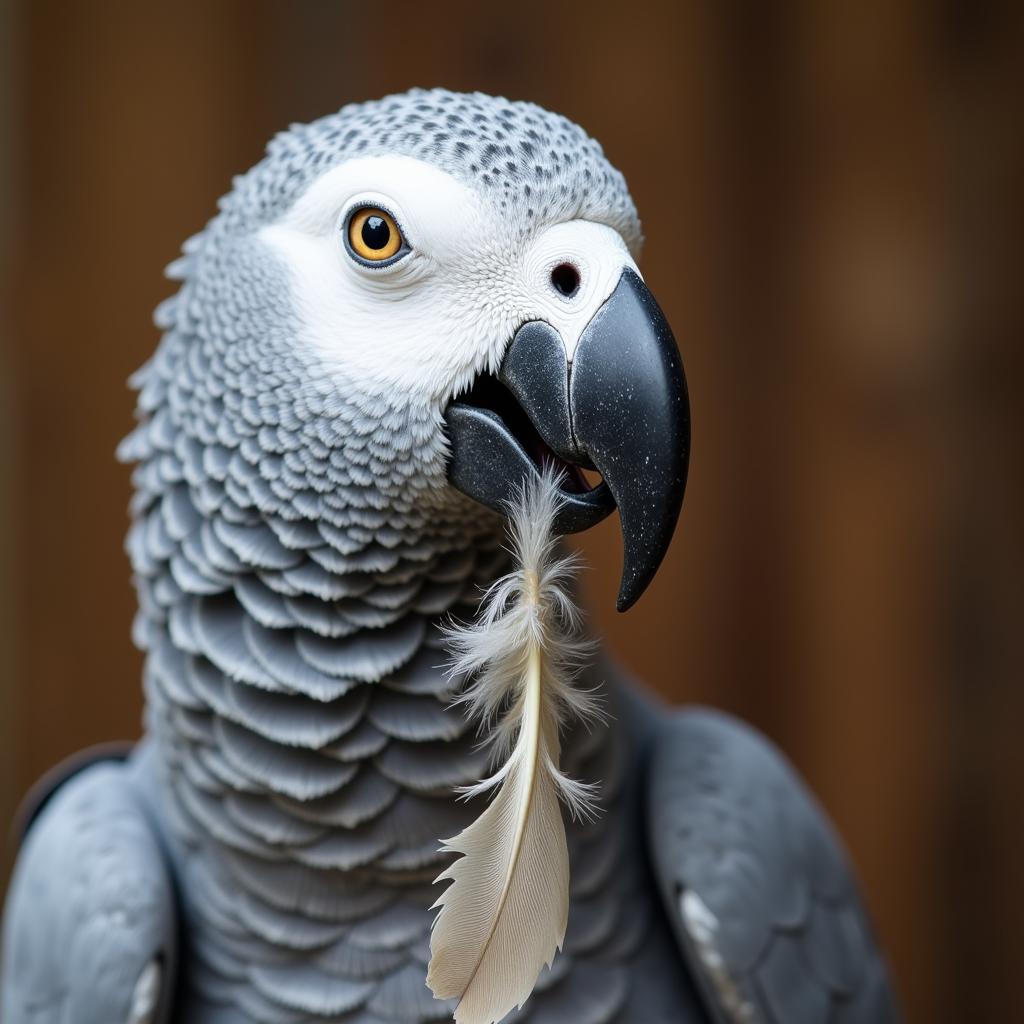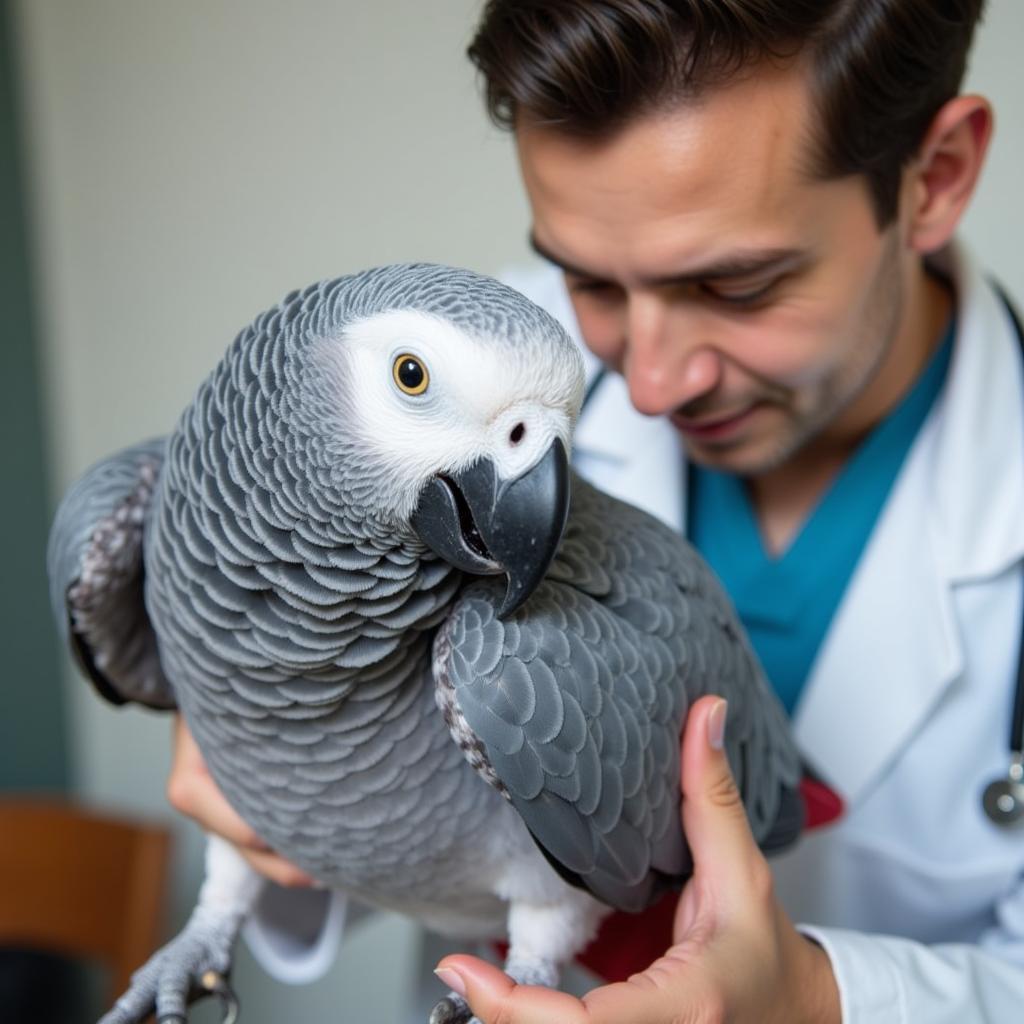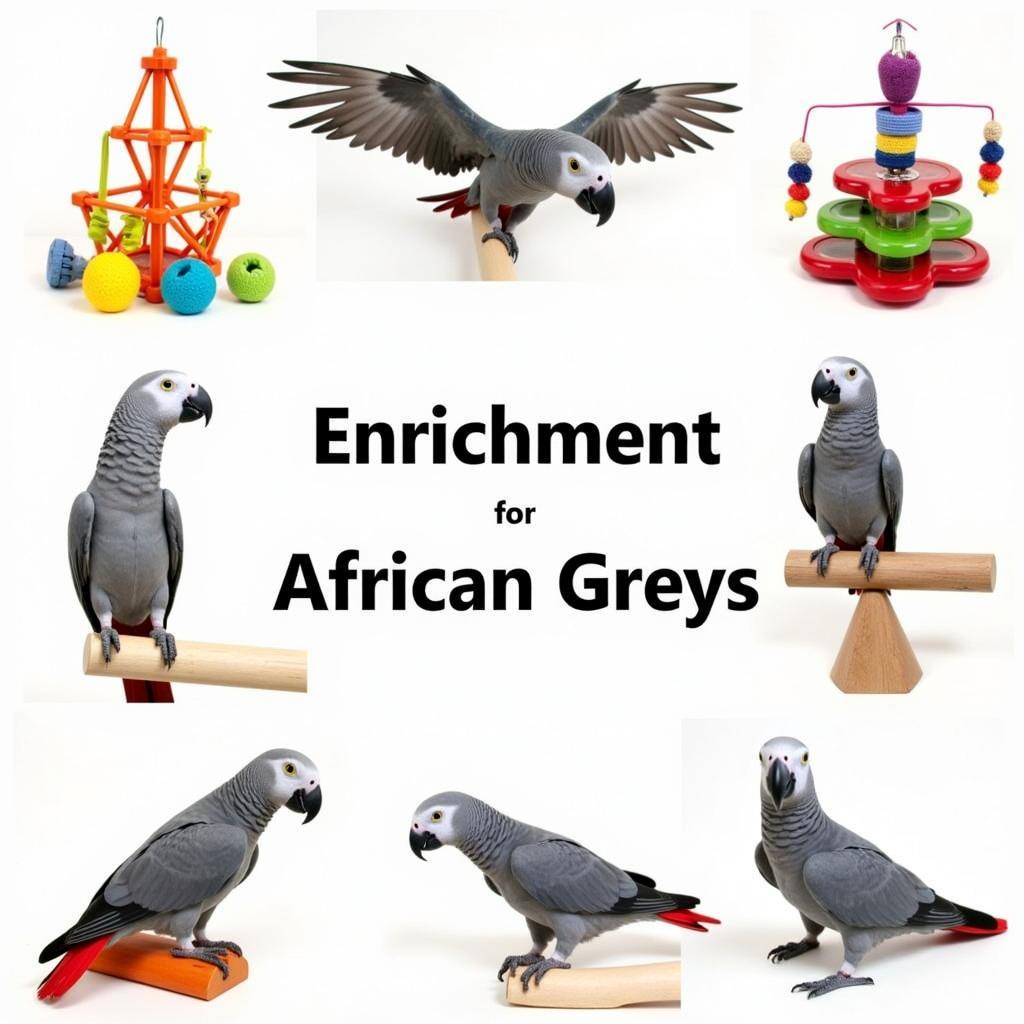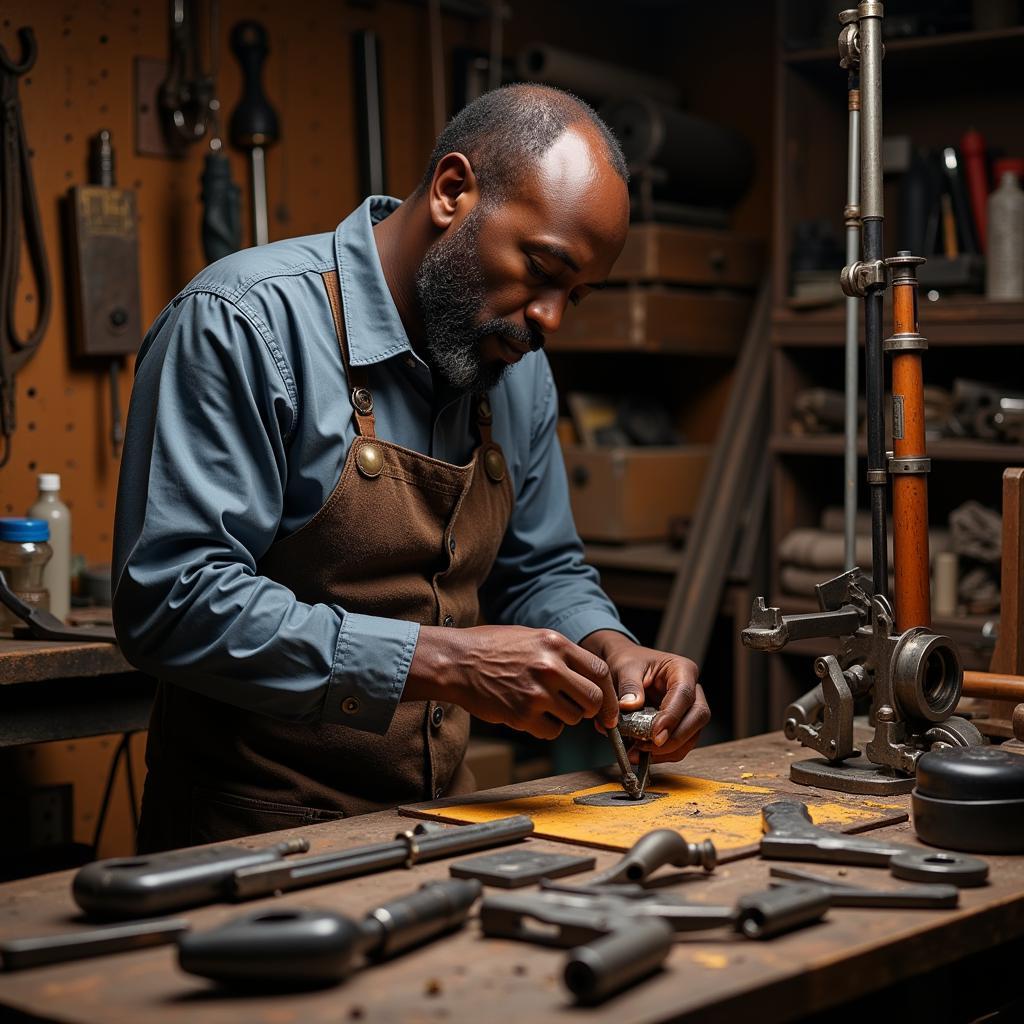Understanding and Addressing African Grey Plucking
African Grey parrots are beloved companions, prized for their intelligence and ability to mimic human speech. However, these beautiful birds can sometimes exhibit concerning behaviors, with feather plucking being one of the most common and distressing. If you share your life with an African Grey, witnessing them pluck their feathers can be heartbreaking. This behavior often signifies an underlying issue affecting their physical or psychological well-being.
 African Grey Parrot Feather Plucking
African Grey Parrot Feather Plucking
Delving into the Causes of Feather Plucking
Understanding why your African Grey might be plucking their feathers is crucial for addressing the issue effectively.
Medical Reasons Behind Feather Plucking
Sometimes, medical conditions can trigger feather plucking in African Greys.
- Parasite Infestations: Tiny organisms like mites or lice can irritate your parrot’s skin, leading to excessive scratching and subsequent feather plucking.
- Skin Allergies: Just like humans, African Greys can develop allergies to certain foods, materials in their environment, or even airborne particles, causing itchy skin and feather plucking.
- Nutritional Deficiencies: A diet lacking essential vitamins and minerals can affect your parrot’s feather health, making them brittle and prone to breakage, which can lead to plucking.
 Veterinarian Examining an African Grey Parrot
Veterinarian Examining an African Grey Parrot
Psychological and Environmental Triggers
Beyond physical health, psychological and environmental factors can also contribute to feather plucking.
- Stress and Boredom: African Greys are highly intelligent creatures that thrive on mental stimulation and social interaction. A lack of enrichment, social isolation, or changes in their routine can lead to stress and boredom, manifesting as feather plucking.
- Anxiety and Fear: Loud noises, unfamiliar people, or a perceived lack of safety in their environment can trigger anxiety in African Greys, leading them to pluck their feathers as a coping mechanism.
- Hormonal Changes: During specific periods, like breeding season, hormonal fluctuations can increase your parrot’s sensitivity and make them more prone to feather plucking.
Addressing Feather Plucking in Your African Grey
If your African Grey is plucking their feathers, taking proactive steps to address the issue is essential.
Consulting an Avian Veterinarian
The first and most crucial step is to schedule an appointment with an avian veterinarian. They can conduct a thorough physical examination, run tests to rule out underlying medical conditions, and recommend appropriate treatment if needed.
 African Grey Parrot Toys and Enrichment
African Grey Parrot Toys and Enrichment
Creating a Supportive Environment
- Enrichment is Key: Provide your African Grey with plenty of stimulating toys, rotate them regularly, and offer opportunities for foraging to keep their minds engaged.
- Social Interaction: Spend quality time with your parrot daily, engaging in interactive play, training sessions, or simply talking and cuddling.
- Stress Reduction: Minimize loud noises, sudden changes in their environment, and potential stressors. Establish a consistent daily routine to provide a sense of security.
- Dietary Considerations: Offer a balanced diet consisting of high-quality parrot pellets, fresh fruits, vegetables, and occasional healthy treats. Consult your avian vet for specific dietary recommendations.
FAQs About African Grey Plucking
1. Can feather plucking be cured?
While addressing the underlying cause can significantly reduce or eliminate feather plucking, it’s not always guaranteed to be “cured” entirely.
2. Is it normal for African Greys to pluck a few feathers occasionally?
Occasional preening and the loss of a few feathers are normal. However, excessive plucking or bald patches warrant concern.
3. Can I treat my African Grey’s feather plucking myself?
It’s crucial to consult an avian vet for diagnosis and treatment. Self-treating can be harmful and delay proper care.
4. What should I do if I suspect my parrot’s plucking is due to stress?
Identify and minimize potential stressors in their environment, provide ample enrichment, and seek guidance from an avian veterinarian or a certified parrot behaviorist.
5. How long does it take to see improvement in feather plucking?
The time it takes to see improvement varies depending on the underlying cause and individual parrot. It can range from weeks to months.
Exploring More Parrot Care Resources
For more information on African Grey parrot care, you might find these resources helpful:
A Lifelong Commitment to Your Feathered Friend
Addressing feather plucking in your African Grey requires patience, dedication, and a deep understanding of their needs. By providing proper care, a stimulating environment, and seeking professional help when needed, you can help your feathered companion live a happier, healthier, and feather-full life. Remember, early intervention is key to successfully addressing this complex issue.
For immediate assistance or to schedule a consultation, please contact us at +255768904061, email us at kaka.mag@gmail.com, or visit us at Mbarali DC Mawindi, Kangaga, Tanzania. Our dedicated team is available 24/7 to support you and your African Grey.


